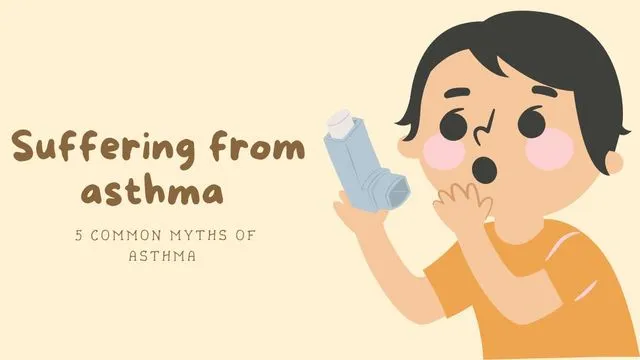- By Priyanka Munshi
- Thu, 04 Apr 2024 05:29 PM (IST)
- Source:JND
Numerous people worldwide suffer from the chronic respiratory condition known as asthma. Symptoms such as wheezing, shortness of breath, tightness in the chest, and coughing result from inflammation and constriction of the airways. The severity of asthma symptoms and the potential for life-threatening episodes can vary widely. Triggers for asthma symptoms include exercise, air pollution, allergies, respiratory infections, and certain medications.
While asthma cannot be cured, it can be effectively managed with appropriate care and self-care techniques. Inhalers and other medications are commonly used to reduce inflammation and alleviate symptoms.
-1712231952284.jpg)
Although asthma cannot be cured, it can be effectively managed with appropriate care and self-care techniques.(Image Credit:Canva)
In a conversation with Jagran English, Dr. Viswesvaran B, a consultant in interventional pulmonology and sleep medicine at Yashoda Hospitals in Hyderabad, discussed common myths surrounding chronic respiratory conditions like asthma.
According to Dr. Viswesvaran, asthma, a chronic respiratory condition, affects millions of people worldwide. Despite its prevalence, numerous myths surround asthma, leading to misunderstanding and misinformation.
Asthma Is Just A Childhood Condition
While asthma often begins in childhood, it can develop at any age. In fact, adult-onset asthma is not uncommon, with triggers ranging from environmental factors to genetics and occupational exposures. It is essential for adults to recognize asthma symptoms such as wheezing, shortness of breath, and chest tightness and seek proper diagnosis and treatment.
Asthma Is Contagious
Asthma is not contagious; it is a complex condition influenced by both genetic and environmental factors. While respiratory infections can exacerbate asthma symptoms, asthma itself cannot be transmitted from person to person through casual contact. However, practicing good hygiene is crucial to preventing respiratory infections, which can trigger asthma attacks.
People With Asthma Should Avoid Exercise
Exercise is beneficial for individuals with asthma, as it improves lung function and overall cardiovascular health. While physical activity may trigger asthma symptoms in some people, proper management, including pre-exercise medication and warm-up routines, can help minimize these effects. With guidance from healthcare professionals, individuals with asthma can safely participate in various types of physical activity.
Asthma Medications Are Addictive
Asthma medications, including inhalers and oral medications, are not addictive. In fact, they are essential for managing asthma symptoms and preventing asthma attacks. Short-acting bronchodilators provide quick relief during asthma flare-ups, while long-term control medications, such as inhaled corticosteroids, help reduce airway inflammation and prevent symptoms. It is essential for individuals with asthma to use their medications as prescribed by their healthcare providers to maintain optimal control of their condition.
-1712231942781.jpg)
There are so many medications that are commonly used to reduce inflammation and alleviate symptoms.(Image Credit:Canva)
Asthma Can Be Cured
While asthma cannot be cured, it can be effectively managed with proper treatment and lifestyle modifications. With the right combination of medications, avoidance of triggers, and regular monitoring, many people with asthma can lead active and fulfilling lives. However, it is essential for individuals with asthma to work closely with their healthcare providers to develop a personalized asthma action plan and adjust their treatment as needed to maintain control of their symptoms.
Also Read: 5 Benefits Of Adding Colourful Bell Peppers To Your Diet
In conclusion, Dr. Viswesvaran emphasized that understanding the realities of asthma is crucial for dispelling myths and promoting accurate information about this common respiratory condition. By debunking these myths, we can help individuals with asthma lead healthier lives and reduce the stigma associated with the condition.

